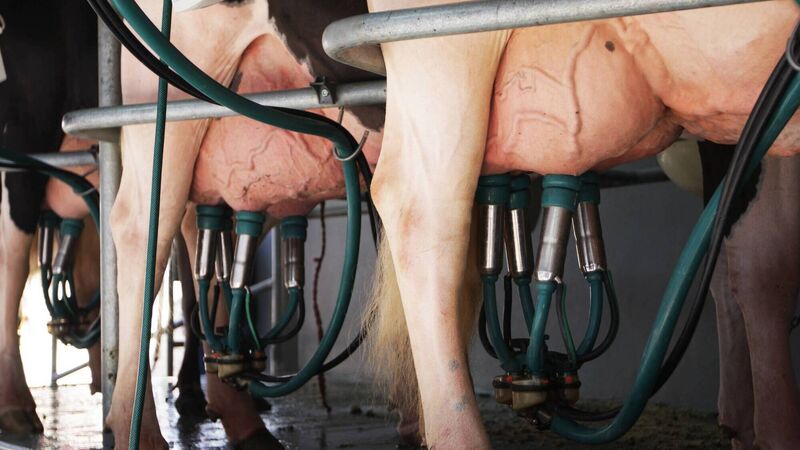Some farmers with up to 90% of milk tied into fixed-price contracts

"On the basis of what we know now, it was unwise to become so heavily exposed by fixing a milk price while not having some security around inputs."
Try from €1.50 / week
SUBSCRIBESuccessive Governments have "neglected" to protect Irish family farms from the worst extremes of income volatility, according to the Irish Co-Operative Organisation Society (ICOS).
Representatives of ICOS attended a recent Oireachtas meeting, at which they called for the introduction of an income stabilisation measure in policy to enable dairy farmers to use periods when market returns are higher to create a modest rainy-day fund to support them when market returns are weaker, or cost of production increases greatly.
Already a subscriber? Sign in
You have reached your article limit.
Annual €130 €80
Best value
Monthly €12€6 / month
Introductory offers for new customers. Annual billed once for first year. Renews at €130. Monthly initial discount (first 3 months) billed monthly, then €12 a month. Ts&Cs apply.
Newsletter
Keep up-to-date with all the latest developments in Farming with our weekly newsletter.
Newsletter
Keep up-to-date with all the latest developments in Farming with our weekly newsletter.
Newsletter
Sign up to the best reads of the week from irishexaminer.com selected just for you.
Newsletter
Keep up with stories of the day with our lunchtime news wrap and important breaking news alerts.
Saturday, February 7, 2026 - 7:00 PM
Saturday, February 7, 2026 - 9:00 PM
Saturday, February 7, 2026 - 12:00 PM
© Examiner Echo Group Limited